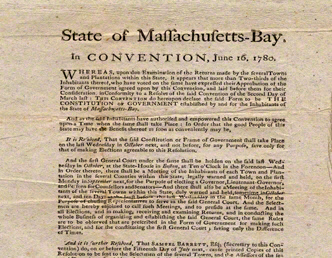I’ve been quiet again lately – take that as a sign that there has been a lot of physics to do. However, I’m compelled to jot a few things down after the barrage of messages coming out of Washington today.
One of the first things that we teach each other when we go to Washington to make the case for basic science is: stay on message. Message is important. I know that it’s sad that the popular world works in sound bites (and that is no difference in the District), but it’s also reality. Being able to come back to that message after any sidetrack is important. No matter what, the first thing and the last thing you want your audience to hear is your message, no matter what happens in between.
I find it funny that today, the Executive Branch sent mixed messages. President Bush started the reversal of his long-held policy of inaction on the climate. Said the President, “In recent years, science has deepened our understanding of climate change and opened new possibilities for confronting it . . . The United States takes this issue seriously” [1]. Stunning. Many have criticized the new proposal for its ability to stall the existing Kyoto process. However, let’s contrast the above statement with something the President said just last July, “I think we have a problem on global warming. I think there is a debate about whether it’s caused by mankind or whether it’s caused naturally, but it’s a worthy debate. It’s a debate, actually, that I’m in the process of solving…” [2]
Of course, most scientists have accepted the evidence of the human/climate connection for many years. This culminated in the past year in the several IPCC reports, stated unequivocally that humans influence climate, and that the projected changes affect poor nations the most heavily. That the President has accepted that the debate is done (even if, in reality, it’s long done) is quite a step forward. A cynic might call this “flip-flopping” – I call it progress.
In contrast, we see NASA’s chief, Michael Griffin, wipes his agency’s hands of the whole business. His agency has no authorization to act on the knowledge of climate change, he said in an interview with NPR’s Morning Edition [3]. He goes on to to dismissively say that, “Whether that is a longterm concern or not, I can’t say.” The absolute lack of concern ehibited by this critical man, this head of a huge scientific and engineering division of the public trust, is insulting. It’s insulting to the People who pay his salary, it’s insulting to the dedicated public servants who daily conduct science to understand and solve this problem, and it’s insulting to the rest of the world. The agency that led us to the moon, a mission with no purpose but to inspire, seems unwilling to accept a mission with a real benefit to Earth. I guess if climate change doesn’t come in the form of a giant errant asteroid heading screaming toward us, NASA could care less.
Griffin goes on to make the most stunning comments of all. When asked if climate change is a problem with which we must wrestle, he says, “I am not sure that it is fair to say that it is a problem we must wrestle with. To assume that it is a problem is to assume that the state of Earth’s climate today is the optimal climate, the best climate that we could have or ever have had and that we need to take steps to make sure that it doesn’t change . . . I would ask which human beings . . . are to be accorded the privilege of deciding that this particular climate that we have right here today, right now is the best climate for all other human beings. I think that’s a rather arrogant position for people to take.”
Hubris, Mr. Griffin, is assuming that it’s our right to develop without regard to the poisons we pour into the air and the sea. Hubris is what changed the climate, and hubris is assuming that by shoving the Earth out of equlibirium we might be finding the “optimum” climate. Climate change, Mr. Griffin, is not a child’s science experiment with a poster and a picture of the scientific method and a little hypothesis about making a better climate for the Earth. Climate change is nothing less than a real problem we started, a real problem which presents us with two choices: evolve to adapt to the new climate, or evolve to undo the changes we induced. I don’t think that sitting around, whining that the President didn’t give us a mandate to act is the best course of action, do you?
Oh, yeah, I guess you do. Look, science needs leaders, not whiners. We’ll just note you under the “irrelevant” column.
[2] http://thinkprogress.org/2007/02/08/bush-quotes-on-warming/
[3] http://www.npr.org/templates/story/story.php?storyId=10571499



